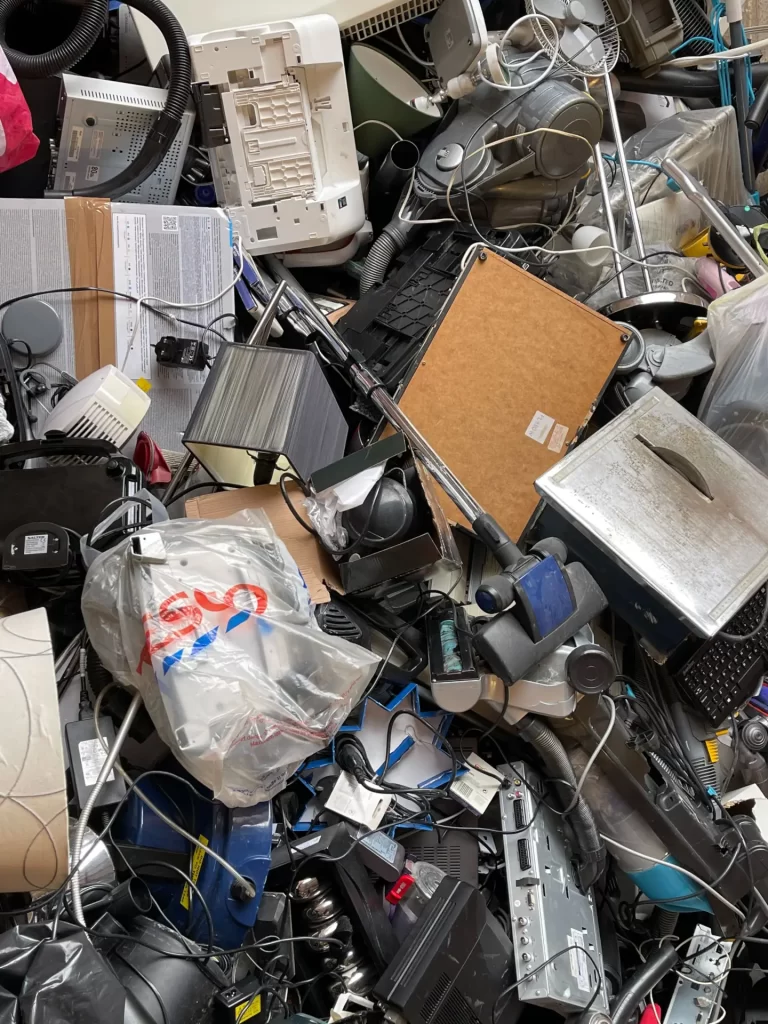In our digital age, electronic devices play a vital role in our daily lives, making communication, work, and entertainment more convenient. However, the rapid advancement of technology has led to a surge in electronic waste (e-waste), presenting significant environmental and health challenges. This article will explore the importance of proper electronic waste disposal, the potential consequences of mishandling e-waste, actionable steps to ensure its responsible management and the role of businesses and government regulations in promoting sustainability.
The Environmental Impact of Improper E-Waste Disposal
Improper disposal of electronic waste can have severe consequences for the environment. When e-waste is in landfills, toxic materials such as lead, mercury, and cadmium can leach into the soil and water, contaminating nearby ecosystems. Moreover, burning e-waste releases harmful gases into the atmosphere, contributing to air pollution and climate change.
Health Hazards of Mishandling E-Waste
The mishandling of e-waste affects the environment and poses serious health risks to humans. Informal recycling practices, often prevalent in developing countries, expose workers to hazardous substances during the dismantling and extraction process. This can lead to respiratory issues, skin disorders, and long-term health complications.
Proper Methods of E-Waste Disposal
- Electronics Recycling: Opt for reputable e-waste recycling programs that responsibly handle and process discarded electronic devices. These recycling facilities extract valuable materials while ensuring the safe disposal of hazardous components.
- Donating or Reselling Electronics: Consider donating or reselling functional electronics to extend their lifecycle. Charitable organizations or refurbishment programs can benefit from the devices, reducing the overall e-waste generation.
- Manufacturer Take-Back Programs: Many electronic manufacturers offer take-back programs, allowing customers to return their old devices for proper recycling or disposal. Utilize these programs to ensure responsible e-waste management.
- Find Certified E-Waste Recyclers: When choosing a recycling facility, look for those certified by recognized environmental organizations or e-Stewards® and R2 (Responsible Recycling) certified companies.
- Data Security: Before recycling, ensure all personal data is permanently removed from devices to protect your privacy and prevent potential data breaches.
The Importance of Electronic Waste Management for Businesses
- Corporate Social Responsibility (CSR): Emphasize the significance of electronic waste management in a company’s CSR initiatives. Businesses can demonstrate their commitment to sustainability by implementing proper e-waste disposal practices, contributing to their positive public image.
- Data Security and Intellectual Property: For businesses, proper e-waste disposal is not just an environmental concern but also crucial for data security and intellectual property protection. Securely disposing of electronic devices ensures sensitive information does not fall into the wrong hands, mitigating the risk of data breaches and potential legal repercussions.
- Compliance with Environmental Laws: Highlight the legal implications of improper e-waste disposal for businesses. Many regions have strict regulations governing electronic waste management, and non-compliance can lead to hefty fines and damage to a company’s reputation.
Government Regulations and the Promotion of Responsible E-Waste Disposal
- E-Waste Legislation: Discuss the importance of government regulations in managing electronic waste. Governments play a crucial role in developing and enforcing laws that govern e-waste recycling, disposal, and the responsible behavior of manufacturers and consumers.
- Extended Producer Responsibility (EPR): Explain how EPR initiatives hold electronics manufacturers responsible for the entire lifecycle of their products, including their end-of-life disposal. Such programs encourage manufacturers to design products with recycling in mind and establish take-back systems.
- Public Awareness Campaigns: Acknowledge the role of government and non-governmental organizations in promoting public awareness about e-waste and its proper disposal. These awareness campaigns educate citizens about the importance of recycling electronics and provide resources for responsible e-waste management.
Empowering Responsible E-Waste Management
The responsible disposal of electronic waste is crucial in safeguarding the environment, protecting human health, and promoting sustainable practices. By recycling e-waste through certified programs, donating functional devices, and advocating for responsible e-waste management, we can collectively reduce the environmental impact of rapidly growing electronic consumption.
Businesses, too, must take part in this endeavor, recognizing the importance of electronic waste management for corporate social responsibility, data security, and compliance with environmental laws.
Furthermore, government regulations and public awareness campaigns are vital in promoting responsible e-waste disposal and ensuring that electronic advancements do not harm the environment.
Together, let us be proactive in adopting responsible e-waste disposal practices, creating a future where technological progress coexists harmoniously with ecological preservation. By working hand in hand, we can protect the planet and pave the way for sustainable development, leaving a lasting legacy for generations.

